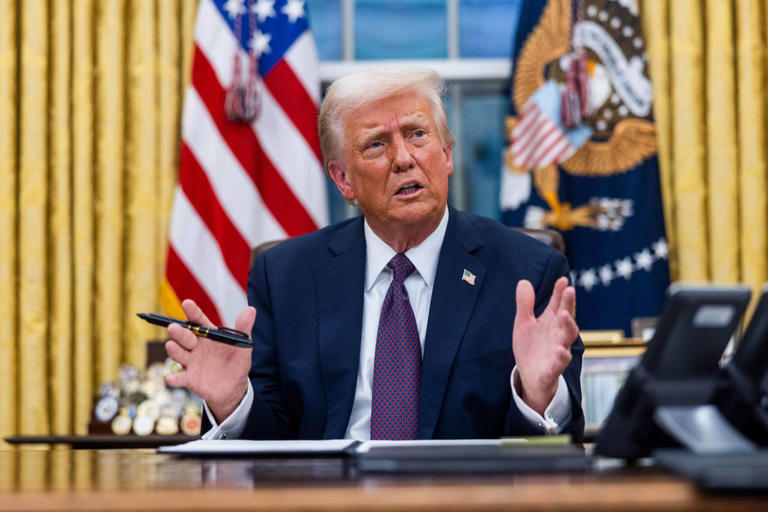“Jan. 6 Defendants Freed: Trump’s Pardons Ignite Fierce Debate!”
Some of the most high-profile figures convicted in the Jan. 6, 2021, Capitol riot were released from prison on Tuesday after President Trump’s sweeping clemency order sparked intense debate within the Republican Party and among those involved in the attack.
Among those freed were Enrique Tarrio, the former Proud Boys chairman sentenced to 22 years, and Oath Keepers founder Stewart Rhodes, whose 18-year sentence was commuted to time served. Both were convicted of seditious conspiracy, a charge requiring proof of plotting to use force to disrupt the peaceful transfer of power.
“Freedom for my son… a dream come true!” Zuny Tarrio, Enrique’s mother, shared on X. By Tuesday morning, all 211 clemency recipients held in federal custody had been released in a process completed within 12 hours, officials confirmed.
Trump’s sweeping move on his first day back in office unraveled the Justice Department’s largest-ever investigation, with prosecutors scrambling to dismiss ongoing cases. Rhodes, newly released, told reporters, “Promises made, promises kept,” as he visited a D.C. jail to support fellow rioters.
The clemency order extended to others, including Matthew and Andrew Valentin, who had just been sentenced to 2½ years for assaulting police. A crowd outside the jail cheered their release, singing along to Bob Marley’s “Redemption Song.”
Trump’s decision to pardon all roughly 1,500 individuals charged in the attack went beyond expectations, including those of his allies. Vice President JD Vance recently said that people who committed violence “obviously” shouldn’t be pardoned, underscoring the divisive nature of the move.
Trump’s sweeping pardons for Jan. 6 defendants sparked outrage among Democrats and discomfort within parts of his own party. While some Republicans defended the move, others, like Sen. Thom Tillis (R., N.C.), criticized the leniency shown to those convicted of assaulting law enforcement. “It’s a bad idea,” Tillis said.
Democrats, including Sen. Dick Durbin (D., Ill.), called the pardons a disgrace. “America owes law enforcement an apology for this whitewashing of January 6,” Durbin said. The Fraternal Order of Police and the International Association of Chiefs of Police also condemned the decision.
Trump, however, sidestepped criticism. “It’s unacceptable to assault police officers,” he said Tuesday, while noting his broader concerns about the justice system. Trump also granted clemency to Silk Road founder Ross Ulbricht, serving life for running a notorious online drug marketplace.
Meanwhile, allies in the House Freedom Caucus, including Rep. Chip Roy (R., Texas), pushed for the rapid release of those still detained. “This was a politicized prosecution,” Roy told Fox News.
The pardons unraveled years of Justice Department efforts to hold Capitol rioters accountable, including convictions for violent offenses. Matt Graves, the former U.S. attorney overseeing Jan. 6 cases, lamented that the clemency disproportionately benefited those convicted of violence. Still, he noted the public record documenting the events would remain intact.
Reactions among pardoned individuals were mixed. Doug Sweet, who received clemency for two misdemeanors, called it a dream come true but questioned pardons for those who assaulted police. “You can’t go punching cops,” he said.
Others rejected the clemency outright. Pam Hemphill, 71, who served 60 days for misdemeanor charges, said she would refuse the pardon. “It’d be an insult to law enforcement and our nation,” she said.
Public opinion on the matter remains divided. A recent poll found 57% of voters opposed pardoning Jan. 6 participants, with support dropping further for those convicted of violence.


